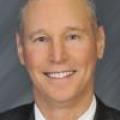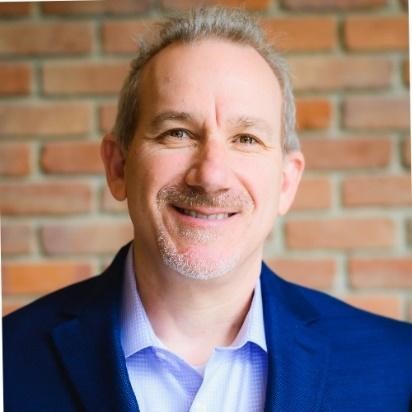WEBINAR: How Providers are Scaling Virtual Care: Best Practices and Lessons Learned from the Leaders
The pandemic reshaped healthcare’s utilization of virtual care. Almost overnight, providers quickly mobilized telehealth programs, reshaped audio-only check-ins, and revamped patient engagement solutions. As healthcare leaders refine and grow these programs over the coming months, our experts detail the strategies and practices to help organizations scale from pilots to enterprise-wide, comprehensive virtual care deployments.
WEBINAR: Advancing an Effective National Privacy Framework for Health Data
Americans are increasingly apprehensive about the privacy of their personal information. A recent Pew Research Center survey found that approximately four out of five Americans are concerned about how their data is used, think the risks of companies collecting their data outweigh the benefits and believe they have little control of their data. The concerns are particularly heightened when it comes to health data.
Webinar: After the Curve Flattens: What’s Next for Healthcare and COVID-19 June 11, 2020
The COVID-19 outbreak caused by the coronavirus has had a profound impact on our healthcare delivery and support systems, our economy, safety and overall way of life. The U.S. healthcare system is still in the throes of COVID-19 mitigation and treatment. As hospitals and health systems look to open their doors to non-COVID patients, what happens to our healthcare delivery system? Healthcare has had to pivot and did in many cases in ways never thought possible. The question remains - do we or can we go back to the way things were?
In this one and a half hour panel, we will discuss how healthcare providers, payers, pharmacies and life sciences businesses have shifted in how they provide care and services and what will be the long-term impact for our healthcare systems.
Speakers:

Josh Schoeller
CEO
Health Care Markets LexisNexis Risk Solutions
Josh Schoeller is an industry thought leader and senior business leader with over 25 years of demonstrated success providing results-oriented operational and technical expertise and organizational direction. He has broad industry and vertical knowledge across Payer, Provider, Life Sciences and Pharmacy healthcare industries and has held key positions in Sales, Product, Operations and Technology leadership roles. Josh currently serves as Senior Vice President and GM of Healthcare. Josh has P&L responsibility and oversees all business functions including Sales, Marketing, Product, Delivery, Market Planning and Engineering for LexisNexis Health Care. Josh has literally grown up in the data hygiene, data integration and analytic decisioning space. His specific domain expertise spans big data, provider and identity data management and integration, application architecture, predictive analytics and decision support. His record of success working with multiple segments across healthcare has provided him the expertise to solve challenges faced by stakeholders at various levels within an organization, leading them to keep the big picture in focus while solving specific problems.

Rich Morino
Senior Director Strategic Solutions
LexisNexis Risk Solutions
Rich is part of LexisNexis Healthcare’s Strategic Clients team. In his current role he provides industry and solution expertise on such topics as improving health outcomes, reducing the cost of care, and enabling consumerism. Over the last 20 plus years Rich has focused on the use of analytics and predictive modeling on healthcare and non-healthcare data. Rich has leveraged this background in industries such as benefit management, statistical software, FWA and HIT. In addition to LexisNexis Healthcare, Rich has worked as such companies as Optum (then Ingenix) SAS Institute and Change Healthcare (then Emdeon) in roles ranging from Industry Consultant to Sales Management. Rich is a graduate of the University of Illinois at Urbana-Champaign.

Ira Klein, MD, MBA, FACP
Senior Director of Quality, Strategy Customer Group
Johnson & Johnson
Ira Klein, MD, MBA, FACP, is the Senior Director of Health Care Quality Strategy in the Strategic Customer Group of J&J Health Care Services, advancing Janssen’s ability to deliver industry-leading value-based solutions to the new value-based marketplace. This work is facilitated by a personal record of having worked on a variety of national quality and policy committees in D.C., and with many medical specialty societies and patient advocacy groups. Previously, he was the National Medical Director for Clinical Thought Leadership at Aetna, capping a 10 year career in the National Payer space. During this time, he founded the Oncology Solutions team, creating and administering value based and medical home contracts in oncology, as well overseeing advanced analytics in population health for large self-insured employers.
Prior to Aetna, he led the quality, cost and care management area for the Bayshore Community Health System, including inpatient, outpatient, sub-acute, and long term care services. Prior to that, he was CMO of Elderplan, a CMS enacted Medicare Demonstration Project in NYC serving the frail elderly. He began his career practicing Internal Medicine for 7 years at Robert Wood Johnson Medical School as an Assistant Professor in the Division of General Internal Medicine.
Ira holds a BS from Rutgers University College of Pharmacy, an MD from University of Medicine and Dentistry of New Jersey – Robert Wood Johnson Medical School, and an MBA from Rutgers University, graduating with honors from all three programs.

Mike Archuleta
CIO, Bridgecare Health Network, Mt. St. Raphael
Recognized as a Top Hospital and Health System CIO to know and named a Rising Star in Healthcare, Michael has extensive experience and a proven track record of driving increased levels of productivity, profits, high integrity customer relationship skills and expert problem-solving approaches. Michael currently serves on the advisory board for Prime Health and as a technology advisor for Self Care Catalyst. He is also an active member of the College of Healthcare Information Management Executives, a cybersecurity advisor to several healthcare startups and an active Speaker within the field of Health Information Technology.
Under Michael’s guidance and leadership, Mt San Rafael Hospital became one of the leading hospitals in the State of Colorado for leveraging advanced technology to enhance the patient and provider experience. With Michael’s innovative, driven approach, the hospital met HIMSS Analytics Stage Six recognition on the eight-stage HIMSS Analytics Electronic Medical Record Adoption Model, a feat only reached by thirty percent of U.S. hospitals. Leveraging advanced Information Technology to improve performance for value-based health care in the areas of infrastructure, business, administrative management, quality, safety, and clinical integration the Information Technology Department has also been presented the 2015, 2016, 2017, 2018 and 2019 Healthcare’s Most Wired Award which is given annually to the top hospitals in the country making the most progress in the adoption of Health Information Technology. Through Michael’s leadership, Mt. San Rafael achieved recognition as best overall organization from the 2019 Most Wired survey.

Anupam Goel, MD, MBA
Chief Health Information Officer
UnitedHealthcare Clinical Services
Anupam Goel is UnitedHealthcare Clinical Service’s Chief Health Information Officer. He’s a general internist with additional training in clinical informatics. He was the co-Principal Investigator for the San Diego Beacon Community connecting electronic medical record systems across the metropolitan area. Prior to joining UnitedHealthcare, he was the inpatient chief medical information officer at Advocate Health Care. He led the effort to move physicians from telephone transcription to voice-to-text using smartphones, an initiative that reduced transcription costs by over 50% in one year. He helped the organization win a HIMSS Davies award for using health information technology to drive business objectives. His professional interest is using technology to help individuals make decisions to minimize avoidable disability and sustain behavior change.

Andrew Renda, MD, MPH
Andrew Renda, MD, MPH is regarded within the industry as one of the leaders in clinical and community collaborations around population health strategies. A published author and speaker in the field of social determinants of health and chronic disease, Dr. Renda’s work strives to inform co-created solutions to improve community health. In his current role as Associate Vice President, Population Health for Humana, he leads four population health and social determinants of health work streams: Insights, Strategy & Execution, Analytics & Platforms, and Thought Leadership & Communications.
Dr. Renda has a B.S. in psychology and biology from the University of Kentucky where he was a National Science Foundation Undergraduate Fellow. He received his medical degree and a diploma in clinical psychiatry from the Royal College of Surgeons in Ireland, followed by a Master’s in Public Health from Harvard University.
View Slides Here
Executive Insights: A Conversation with Quest Diagnostic’s Chief Clinical Officer, Patrick James
Is Regular Testing the Solution to Get Back to School & Work?
How can schools, employers and sports leagues use testing to reduce risk? Learn about the options that educators and athletes are discussing to create safer environments. Quest Diagnostics is at the forefront of these issues. The discussion focused on of the possibilities and limits of regular testing, including:
- Concerns about antibody tests
- Regularity of testing required in different environments
- Strategies for employers & educators
Webinar: The COVID-19 pandemic is influencing consumer health behavior. Are the changes here to stay?
The COVID-19 pandemic is changing the economy, the way we work and the health system. A comparison by PwC’s Health Research Institute (HRI) of American consumer sentiment before and during the pandemic reveals that people are accessing health information in new ways. Their trust has shifted as well.
In this webcast a panel of health experts will examine insights from PwC’s recent consumer survey findings: The COVID-19 pandemic is influencing consumer health behavior. Are the changes here to stay? HRI, which surveyed 2,533 Americans between April 2 and 8, found that the delivery of care may look very different after the pandemic. HRI’s results signal that US businesses could play an even bigger role in protecting the health of their workers, that the health system likely will make more room for telehealth and other forms of virtual care, and that the American consumer may take a more active role in managing health and participating in a system that is being remade.
Agenda
● The COVID-19 pandemic is influencing consumer health behavior. Are the changes here to stay?
● Understanding the broad pandemic implications on your healthcare business: Dynamically simulate the progression of COVID-19, potential economic impact and consumer response - so that you can plan your healthcare company’s strategies and actions.
Sundar Subramanian
Health Industries Advisory Strategy Consulting and Growth Platforms Leader, PwC US 
Sundar leads the US Strategy Consulting and Growth Platforms for PwC Health Industries, and the Government Programs Center of Excellence (GCoE)
ocused on the Medicare, Medicaid, and the exchange/ACA marketplaces. He currently leads PwC US Health Industries COVID-19 efforts around predictive
modeling, dynamic and resilient strategy and recovery and re-activation for healthcare clients. He pioneers work linking analytics and AI with strategy decision
making and co-authored new thinking around dynamic and resilient strategy to manage through uncertain times.
Sierra Hawthorne
Health Industries Advisory Director, PwC 
Sierra brings experience in artificial intelligence applied to the field of public health. Her clients have included national health insurers, integrated delivery networks,
charitable foundations and local government. Sierra has supported these clients through analytics strategy, digital strategy, consumer experience design,
and community health investment portfolio planning.
Benjamin Isgur
Health Research Institute Leader, PwC 
Ben leads PwC's Health Research Institute. In this role, he oversees thought leadership and research initiatives for the firm and clients.
He also consults with healthcare systems, trade associations, and policy groups on strategic planning, and industry intelligence and trends.
Ben is a published writer and his research is often cited by health leaders across the industry. In addition, he frequently speaks on a range of topics,
including physician-hospital alignment, government policy, medical cost trends, consumerism, academic medicine and digital health.

Sarah Haflett
Health Research Institute Director, PwC
Sarah is a Director at PwC's Health Research Institute (HRI) where she leads the development of thought leadership and research initiatives in the provider sector,
with a particular focus on care delivery innovation and health information technology. Prior to joining HRI in 2010, she worked as a PwC consultant for seven years, advising healthcare provider
clients on growth and integration strategies and operations improvement.
Sarah has worked in a variety of healthcare settings, including academic medical centers, health systems, community hospitals, and large physician practices.
Webinar: After the Curve Flattens: What’s Next for Healthcare and COVID-19 June 11, 2020
The COVID-19 outbreak caused by the coronavirus has had a profound impact on our healthcare delivery and support systems, our economy, safety and overall way of life. The U.S. healthcare system is still in the throes of COVID-19 mitigation and treatment. As hospitals and health systems look to open their doors to non-COVID patients, what happens to our healthcare delivery system? Healthcare has had to pivot and did in many cases in ways never thought possible. The question remains - do we or can we go back to the way things were?
Bloomberg: Everyone Has a Contact-Tracing App, and Nobody’s Happy About It
Everyone Has a Contact-Tracing App, and Nobody’s Happy About It.
Questions arise over privacy, surveillance—and whether they even work.
Webinar: The COVID-19 pandemic is influencing consumer health behavior. Are the changes here to stay?
The COVID-19 pandemic is changing the economy, the way we work and the health system. A comparison by PwC’s Health Research Institute (HRI) of American consumer sentiment before and during the pandemic reveals that people are accessing health information in new ways. Their trust has shifted as well.
Covid-19 and the Need for Health Care Reform
The Covid-19 pandemic has brought into sharp focus the need for health care reforms that promote universal access to affordable care. Although all aspects of U.S. health care will face incredible challenges in the coming months, the patchwork way we govern and pay for health care is unraveling in this time of crisis, leaving millions of people vulnerable and requiring swift, coordinated political action to ensure access to affordable care.
Read more of Dr. King's perspective below.
Securing the Safety Net and Protecting Public Health During a Pandemic
The coronavirus disease 2019 (COVID-19) has exposed gaps in the social safety net in the US. Medicaid, which covers 71 million individuals, has an important responsibility in addressing these gaps. Medicaid programs can fund unexpected health care services that other insurance plans may exclude and are thus well-positioned to ensure that vulnerable patients have access to important health care services and that hospitals and other health care organizations and clinicians are reimbursed for providing that care.
States can take several actions to waive federal or state requirements to accomplish the following goals: (1) improving prompt testing and treatment of patients with COVID-19, (2) mitigating the strain on the health care system and preserving the capacity of hospitals and health care practitioners, and (3) limiting transmission of COVID-19 by facilitating changes in how care is delivered. Through the series of actions outlined below, Medicaid programs should have a key role in protecting enrollees, supporting public health efforts to reduce the spread of the virus, and aiding the health care system to increase capacity.
Reach more of this perspective below.
